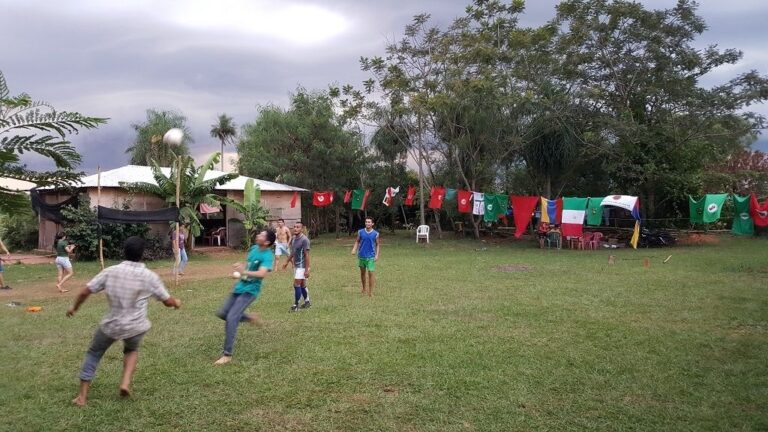Since 2006, Instituto Agroecologico Latinoamericano, IALA, has trained campesinos, small-scale farmers, in agroecology in Latin America through popular education. This institution plays an important role in resisting industrial agriculture all over the region and provides a different perspective on rural development.
Ever since the so-called Green Revolution in the 1950’s, industrial agriculture has been influential in Latin America. This large-scale agricultural model has traditionally been hailed as a road to development. However, it has been increasingly criticized due to its large climate footprint as well as its social consequences, such as land concentration and wide use of pesticides. But there are more sustainable alternatives to this model: one such is agroecology, which is taught around the region by the Pan-American initiative IALA, Instituto Agroecologico Latinoamericano. In the IALA schools, campesinos are prepared for a life of both caring for the land as well as organizing for a different world.
IALA was first started in Venezuela in 2006 by the country’s late President Hugo Chávez to aid social movements in resistance against corporate agriculture. It is run by the national member organizations of the global small farmer network La Vía Campesina. The main goals of La Vía Campesina is to achieve distributive land reforms, fight genetically modified organisms (GMO) and establish food sovereignty by practicing agroecology.
Agroecology is a radical framework for practicing organic, small-scale agriculture. The agroecological approach touches upon more than just the farming itself; political, social, scientific, and practical aspects are also included. It is politically significant as it draws on issues such as participatory, agricultural traditions as well as new innovations. Agroecology is thoroughly holistic in its view of nature. Food sovereignty, however, is the right of peoples to define their own systems of food production – in contrast to the current global food system. The concept upholds the right to healthy and culturally relevant food that is produced by sustainable and organic methods. Food sovereignty can be viewed as a way of democratizing food production. It is additionally often claimed by La Vía Campesina that “small farmers cool the earth”, meaning that their agroecological model is an effective way to combat climate change.
I briefly visited the IALA Guaraní in Nueva Italia in the rural outskirts of Asunción, Paraguay back in late March 2017. What I witnessed was a deeply coherent environment, where everything was done collectively, through a schedule of shared responsibilities. That night, a noche cultural was held at the school, where after a whole day of classes the students organized cultural activities and cooked a big dinner together. Living together was clearly an important part of studying at this school – relating to how practicing agroecology is not only seen as a production model, but also as a collective political movement and a way of life. All around hung colorful flags of La Vía Campesinas member organizations, such as the Landless Workers Movement (MST) of Brazil and Organization de Lucha por la Tierra (OLT) of Paraguay. In the main room, there was a big painting depicting campesinos protesting while airplanes fumigated their villages with pesticides.
IALA was expressed as “part of a bigger resistance movement” against a neoliberal agricultural model that only benefits the few on the expense of the many. In Paraguay, a quite evident example, genetically modified soy monocultures have in recent decades expanded dramatically in the country’s rural areas. These fields often resemble green seas reaching beyond the horizon, and the crops are exported mainly to Europe and China as animal feed for meat industries. This has led to an extreme concentration of land, meanwhile there are thousands of landless campesinos. Therefore, for the sake of their livelihoods, campesinos are forced to mobilize. The popular education of IALA plays an important role in forming social leaders for this mobilization.
In the IALA schools, agroecological ideas are put into practice every day, and the founding of IALA enabled agroecology to become a degree for campesinos. Each class studies for five years at the schools, combining theoretical knowledge and political education with collective practice. This process has contributed to connecting many campesinos all over the region and formed them into activists through this grass-roots participatory education. Since the founding in Venezuela, IALA schools have also been established in Brazil, Paraguay, Argentina, Nicaragua, Colombia, and Ecuador.
Latin America’s rural problems are evidently political, economic, and social. One of the most crucial questions within rural development is the access to land, which is especially noticeable in Latin America. If the traditional model for development is not sustainable, one might need to look for alternatives. IALA and the theory and practice of agroecology provides an alternative way forward, towards a different form of rural development.


